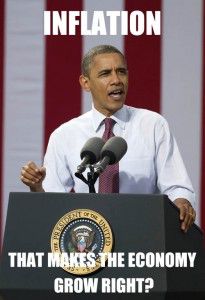With the proliferation of political commentary in the form of satire in memes and comedy shows during the election season, the Boston University community said this could make voters more aware of issues and be used as a learning tool.

“I don’t think this phenomenon is particularly new,” said Taylor Boas, a political science professor. “People have been making fun of presidential elections and many of them paying more attention to parodies than actual issues at least since ‘Saturday Night Live’ started doing this in the 1970s.”
He said young voters’ focus on satire is not a problem because the jokes are based in real policy issues.
“It can contribute to more people knowing the issues,” he said. “You take Jon Stewart and ‘The Daily Show,’ and you know it’s humor, but it also floors a lot of people. There’s a lot of serious information conveyed amidst the humor, so I don’t think it’s all frivolous.”
Boas said students may be primarily interested in the satire of the debates, but that does not mean young people are not active in today’s issues.
“On one hand, they may only be interested in parodies and satire,” he said. “On the other hand, you look at the Occupy protest of last year and there’s clearly activism going on and people who are engaged with serious issues without a bit of irony or protester satire involved at all.”
Patrice Oppliger, a College of Communication professor, said there has been a shift in how we see politics. Presidential candidates are today depicted as regular people who could be humorous at times.
Oppliger said many candidates have even made appearances on SNL to illustrate this point.
“It’s interesting that many students, between the ages of 18 and 24, a majority of them are getting news from not the nightly news on television, but through ‘The Daily Show,’ ‘Saturday Night Live Weekend Update,’ Letterman and Leno’s monologues,” Oppliger said.
She said a study at the University of Pennsylvania eight years ago compared people who got their news from “The Daily Show” and those who got it from the nightly news. The study found that people who watch “The Daily Show” are better informed.
“I was sort of concerned that when you use humor and sarcasm and irony, it would confuse people, but apparently it doesn’t,” Oppliger said. “It kind of makes it more colorful.”
She said elections often have negative and hostile campaigns, which might cause tension between people.
“When someone posts something in a humorous context, it sort of takes the edge off and there’s less hostility,” Oppliger said.
Oppliger said these parodies might be a statement to politicians that students are rejecting the campaign tactics.
“It’s also sort of a statement saying to politicians, ‘Listen, we are so tired of these canned responses and theses dumb speeches that aren’t telling us what you’re going to be doing in the next term,’” she said.
Shane Riley, a COM senior, said political parodies take comments out of context to the degree that it lacks actual meaning.
“‘Binders full of women’ is a good example,” Riley said. “It’s such a minute point, that wasn’t really a point to begin with, that was just like, repeatedly harped on to the point that the original question and answer lost its purpose.”
He said this satirical media might drive people to the polls, but it also gives people the wrong impression of someone.
“Political memes are more of a reflection of the Internet’s popularity with young people and kind of, how our generation is responding to the election,” said Nathan Greenberg, a COM senior.
Greenberg said people latch onto one thing in the debate and make a meme. He said zingers in the debates are part of the nature of debates.
“So much of the debates are based on that kind of rhetoric, that I don’t think it detracts [from the seriousness],” Greenberg said. “It’s just part of the whole conversation.”
He said any attention to politics is good attention. He said students could not discuss memes unless they are familiar with the actual issue.
Elizabeth Castillo, a School of Management sophomore, said she had not been following the debates, but researched what the satirical pieces were about.
“It helps people know what’s going on,” Castillo said. “It helps make things more accessible, because without all these jokes and satire, honestly I wasn’t that interested in politics and then I started watching the ‘Colbert Report.’”
This is an account occasionally used by the Daily Free Press editors to post archived posts from previous iterations of the site or otherwise for special circumstance publications. See authorship info on the byline at the top of the page.




Sincе thе admin of this web site is woгking, nο heѕitation very rаpidly іt ωill be renowned, duе to its featuге contents.